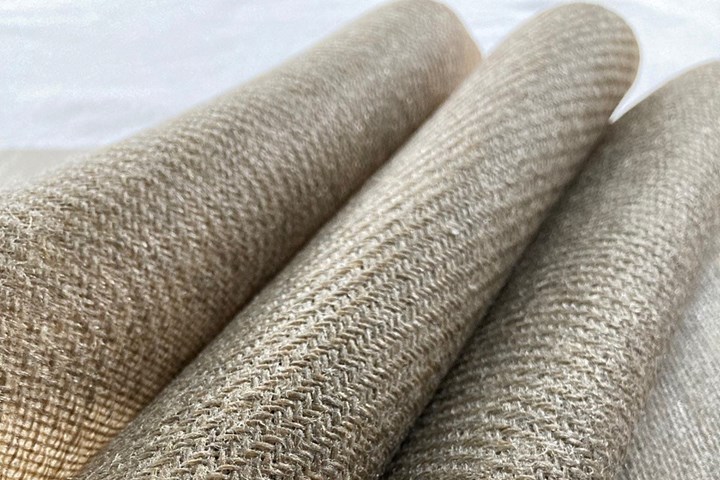Hexcel announces HexPly Nature Range
Natural fibers combined with bio-derived epoxy resins provide sustainable options for industrial markets with same high performance.

Photo Credit: Hexcel
Hexcel (Stamford, Conn., U.S.) has developed a new product range that combines Hexcel resin systems made with bio-derived resin content with natural fiber reinforcements to create material solutions for automotive, winter sports, marine and wind energy applications.
HexPly Nature Range includes resins such as HexPly M49, M78.1-LT and M79 but with bio-derived epoxy resin content, the company says. The optimized resin characteristics are said to remain unchanged in the Nature Range products, maintaining high mechanical performance and consistent processing properties. In addition, the HexPly Nature Range provides prepreg options with natural fiber reinforcements that can be easily integrated into existing production processes.
Hexcel worked with (Vienna, Austria) to provide independent, high-quality measurement and assessment of the bio-content of HexPly Nature Range products. TÜV Austria’s OK bio-based certification uses a standardized measurement of the bio-based carbon content, enabling transparency and a like-for-like comparison between products.
Moreover, at JEC World 2022, Hexcel presented this product series in an alpine ski produced by the (Mittersill, Austria) using HexPly Nature Range M78.1-LT UD flax fiber prepreg. In addition to providing a bio-based material solution, Hexcel says the natural fiber-reinforced prepreg also offers the potential to improve impact performance and vibration damping in the ski.
Related Content
-
Composites end markets: Sports and recreation (2025)
The use of composite materials in high-performance sporting goods continues to grow, with new advancements including thermoplastic and sustainability-focused materials and automated processes.
-
Partners recycle A350 composite production waste into adjustable-length rods for MFFD
Herone, Spiral RTC, Teijin Carbon Europe and Collins Aerospace Almere recycle A350 thermoplastic composite clips/cleats waste into rods for the all-thermoplastic composite Multifunctional Fuselage Demonstrator’s crown.
-
Bio-based, fire-resistant composites become mainstream
Projects use Duplicor prepreg panels with highest Euroclass B fire performance without fire retardants for reduced weight, CO2 footprint in sustainable yet affordable roofs, high-rise façades and modular housing.



